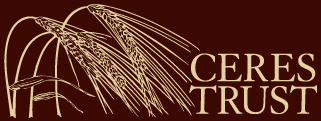Development and delivery of a comprehensive orchard floor management tactics to promote natural pest management and enhanced soil quality
Principal Investigator: Dr. Matthew J. Grieshop, Associate Professor of Organic Pest Management, MI State University, Dept. of Entomology
578 Wilson Road 205 CIPS, East Lansing, MI 48824
[email protected] · 517-432-8034 · Fax: 517-353-5598
Report Prepared By: Jason M. Matlock, Project Doctoral Student and Matthew Grieshop
Executive Summary
Management of orchard floors presents unique opportunities for organic apple producers. The objective of our multiyear project was to develop and evaluate comprehensive floor management practices that optimize pest and nutrient management for organic apple producers. Initially our research focused on the utilization of mechanical implements to manipulate overwintering leaf cover –with the objective of minimizing apple scab and disturbing pest insect overwintering sites. We also evaluated whether buckwheat cover crops can modify orchard microclimatic conditions to help avoid frost damage. The biggest outcome from our studies so far is cultivation timed around key pest life cycle stages –especially late in the growing season– reduces early season pest damage. A second finding of this study is that early season physical manipulation of orchard floors is greatly complicated when faced with wet springs. Abnormally high precipitation events delayed our early season cultivation and physical floor material manipulation by nearly 2 months in 2014 and 1 month in 2015. Thus, in 2015 we evaluated how late season nitrogen applications in the form of amino acids affect orchard floor dynamics with a focus on the reduction of overwintering apple scab (the primary pest of apples in North Eastern production) and changes in the detritivore community utilizing metagenomic techniques. Results from this line of inquiry suggest that nitrogen applications may impact orchard decomposer invertebrates but not nearly as much as overall management practices. While just a first step in unraveling this complex system, the data we have generated in this area represents the most complete evaluation of the invertebrate detritivore community of apple orchards to date. We presented project results at 9 extension and scholarly events including a field day at AlMar Orchards. Data from this project is expected to result in 2-3 scholarly publications.
